Company See Company Do
Success Isn't Monkey Business
This diverse collection of business books includes fascinating case studies of failed startup and a thriving financial organization; considered advice for entrepreneurs, business leaders, and employees; plus, a guidebook to contemporary economics.
Excuse Me
The Survival Guide to Modern Business Etiquette
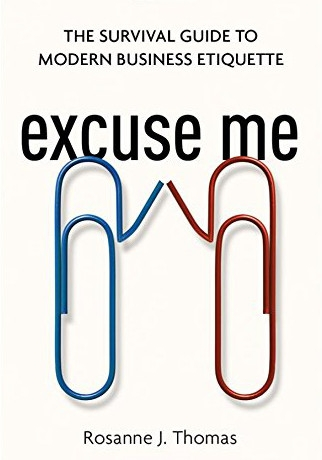
Rosanne J. Thomas
AMACOM
Hardcover $21.95 (288pp)
978-0-8144-3791-9
Buy: Local Bookstore (Bookshop), Amazon
In many modern-day workplaces, good manners are lacking, even nonexistent. There are numerous reasons for this harsh reality, but they are less important than the sensible solutions offered by business etiquette specialist Rosanne Thomas in her highly useful book.
Rather than adopting a preachy approach, Excuse Me is filled with workplace vignettes that feature multigenerational workers and illustrate both good and bad behavior. These examples, in addition to advice conveyed in a helpful, positive way by the author, elevate the book to the status of a “survival guide,” as the subtitle claims.
Throughout the book appear bullet-point lists that enhance the text, such as “Business Attire Rules,” “Cell Phone Self-Intervention,” and “Texting Tips.” At the end of each chapter, Thomas reinforces the key points in a section entitled “Remember.”
Excuse Me does an admirable job of touching on key areas of concern so employees can prevent typical gaffes. A chapter on “Business Behavior,” for example, makes no assumptions about “everyday manners” and provides some excellent pointers on holding productive meetings and working with teams.
Not surprisingly, several chapters concentrate on electronic communication and social media; here, Thomas offers sobering counsel: “Online, mistakes live forever.” Just as essential, though, is a chapter on business dining with smart advice about tables, toasting, and tipping.
Both novice and experienced workers will find a wealth of business etiquette in a book that, instead of excusing bad behavior, could help prevent it from happening in the first place.
BARRY SILVERSTEIN (August 27, 2017)
Twisted Leadership
How to Engage the Full Talents of Everyone in Your Organization
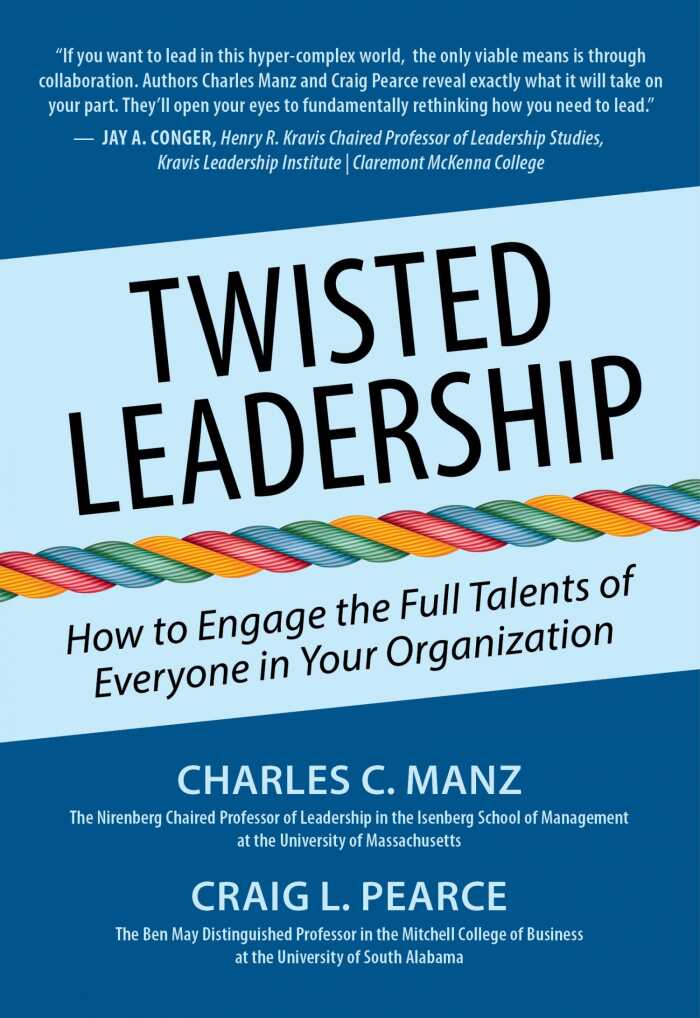
Charles C. Manz
Craig L. Pearce
Maven House
Hardcover $21.95 (160pp)
978-1-938548-86-4
Buy: Amazon
This provocatively titled book is not about “narcissism and self-serving destructive motives and action on the part of so many power holders,” as some may surmise, but rather promulgates “intertwined, synergistic … process-based leadership.” So write business professors Charles Manz and Craig Pearce, who elegantly describe four components of twisted leadership as complementary strands woven together in a rope: Self-leadership, SuperLeadership, Shared leadership, and Socially responsible leadership.
The professors identify the destructive effects of “centralized, top-down, hierarchical leadership,” labeling it “leadership disease,” and propose the four strands referenced above as “effective medications.” The strands are fully discussed in individual chapters, which include an overview, a seven-step progression to achieve success, and several questions for the reader to answer.
Each form of “twisted leadership” is uniquely important and stands on its own, but as Manz and Pearce point out, together they are “like synergistic strands that, when twisted together, can create a formidable rope.” To demonstrate the collective power of the four strands, the authors use as an example W. L. Gore and Associates, a highly successful manufacturer of multiple products that all use as their primary ingredient the company’s well-known Gore-Tex.
Twisted Leadership closes with a chapter that details “prescriptions” for implementing the principles of twisted leadership in organizations, along with a useful resources section for further study. Competing with the authors of numerous other leadership books in a burgeoning category, Manz and Pearce are to be commended for putting a new twist on the subject.
BARRY SILVERSTEIN (August 27, 2017)
Economics in Three Lessons & One Hundred Economics Laws
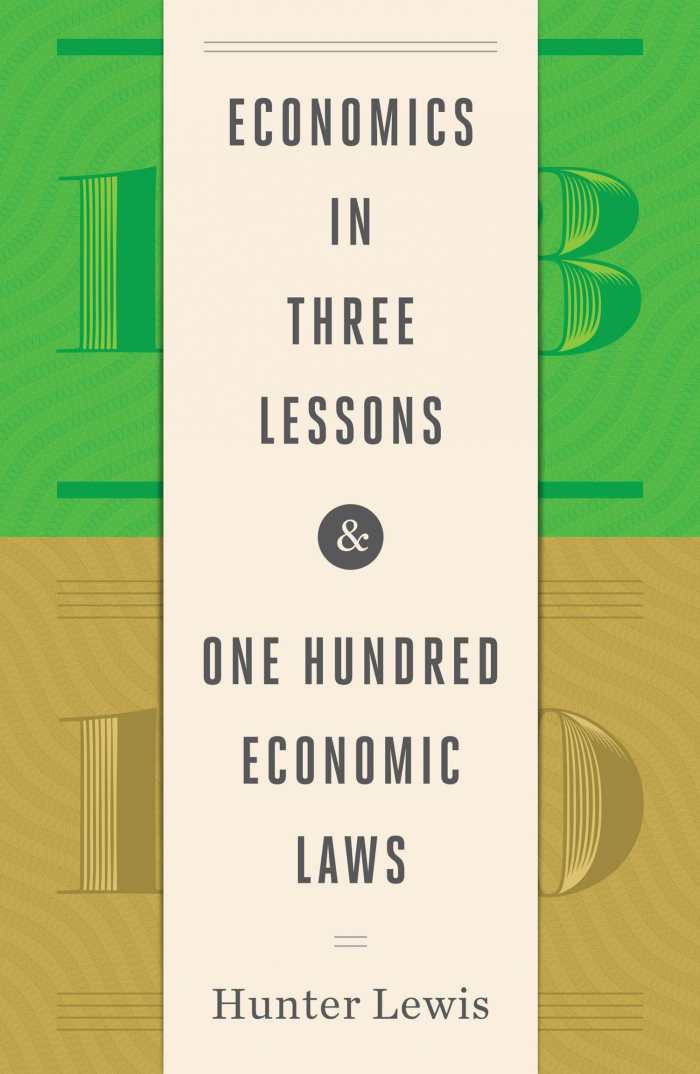
Hunter Lewis
Axios Press
Hardcover $15.00 (403pp)
978-1-60419-114-1
Buy: Local Bookstore (Bookshop), Amazon
Former global investment firm CEO Hunter Lewis tackles contemporary economics in his two-part book. It distills the topic into three understandable lessons, followed by one hundred “economic laws” that the author hopes can be used “to guide our actions and choices in an uncertain world.”
Relying on economic scholars to bolster his case, Lewis addresses “Sustainability” (Lesson One), “The Free Price System” (Lesson Two), and “Enemies of the Free Price System” (Lesson Three). Lessons Two and Three present a spirited defense of free enterprise: “What is needed to pull humanity out of dire poverty,” writes Lewis, “is a free price system, one that is neither manipulated or controlled.” The author’s impassioned plea to rid the economic system of “crony capitalism and controlled prices” may not be met with universal agreement, but it certainly deserves a public hearing.
The second section of the book enumerates and briefly describes one hundred economic laws, each of which successively builds upon the other. This material is an education unto itself; the laws cover such areas as economic analysis, sustainability, profits and wages, equality and inequality, division of labor, economic calculation, money, interest rates, banking, and spending versus saving. Lewis helpfully provides a list of all of the laws with accompanying page numbers at the back of the book, should the reader want to reference laws of particular interest.
More of an expository primer than an in-depth textbook, Economics in Three Lessons & One Hundred Economics Laws deftly illuminates a subject that is too often maligned and misunderstood.
BARRY SILVERSTEIN (August 27, 2017)
Lending Power
How Self-Help Credit Union Turned Small-Time Loans into Big-Time Change
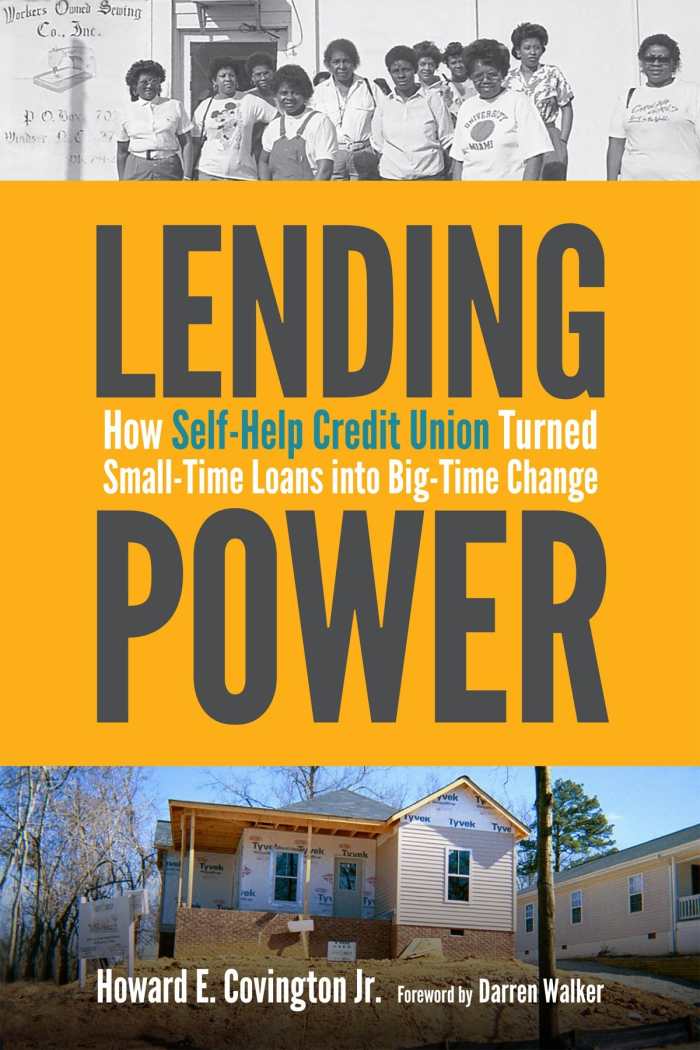
Howard E. Covington Jr.
Duke University Press
Hardcover $27.95 (240pp)
978-0-8223-6969-1
Buy: Local Bookstore (Bookshop), Amazon
Lending Power is Howard Covington’s uplifting and compelling account of a credit union that champions the underserved. The story of Self-Help Credit Union is as much about founder Martin Eakes, whose mission was “extending the civil rights movement by creating economic equity.” Eakes recruited and encouraged other young activists to play significant roles in the development process.
Covington deftly chronicles the development of Self-Help from its roots in Durham, North Carolina, as a statewide credit union to its eventual morphing into the national Center for Responsible Lending (CRL). Perhaps the most intriguing aspect of the Self-Help story is its intersection with the unprecedented mortgage lending crisis that contributed to the 2008 recession.
Interestingly, it was CRL’s groundbreaking report on predatory lending that in part predicted the financial meltdown. Self-Help personnel even played a subsequent role in the new Consumer Financial Protection Bureau.
The book captures some of the panic of the times as investment banks begin furiously calling in loans. Ironically, Self-Help’s own $35 million line of credit was suddenly due. While Self-Help recovered financially, it was later forced to close branches and lay off employees.
Still, as Covington meticulously reports, Self-Help survived and thrived separately from CRL, ultimately growing by 2016 into Self-Help Federal, a credit union with branches in California, Illinois, and Florida. This is a positive, inspiring look at a socially conscious, soundly managed mission-driven organization.
BARRY SILVERSTEIN (August 27, 2017)
Passion Projects for Smart People
Turn Your Intellectual Pursuits into Fun, Profit and Recognition
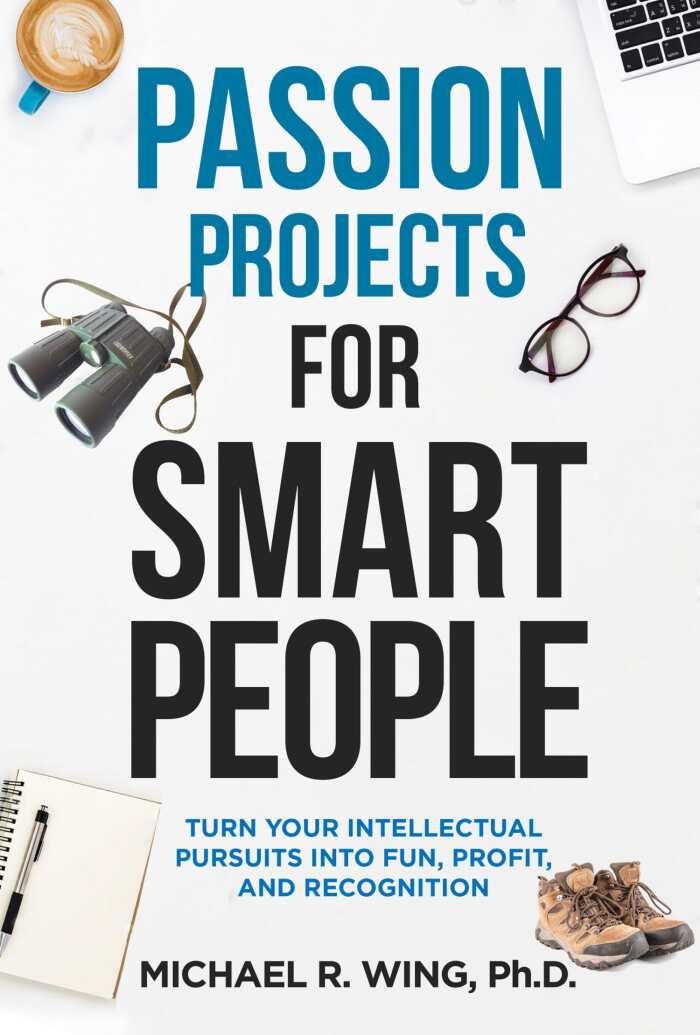
Michael R. Wing
Quill Driver Books
Softcover $14.95 (180pp)
978-1-61035-306-9
Buy: Local Bookstore (Bookshop), Amazon
A sure cure for workplace boredom is the “passion project,” which educator Michael Wing says people pursue because it “adds meaning to their lives and gives them satisfaction.” In a book that celebrates and demonstrates creativity, Wing writes in a kind of show-and-tell style, describing numerous projects conducted by him and others.
To provide an organizational structure, the book classifies the projects into categories that relate to how one conceptualizes and pursues them. One chapter, for example, explores how projects can result from affiliations with organizations or collaborations with individuals.
Another chapter concerns projects that emerge from travel with purpose; “travel with a sense of mission is more satisfying and transformative than travel without one,” writes Wing. Still another chapter discusses “citizen science programs,” such as the Audubon Society’s annual Christmas Bird Count, that anyone can participate in. There are plenty of examples all along the way.
Wing is not just a raconteur—he follows his own advice, pursuing numerous projects of his own, some of which he incorporates into his science classroom. He firmly believes there is a direct relationship between projects and happiness, citing several authorities to validate his belief.
The author generously provides a lengthy section of resources to encourage others to delve into projects that interest them. Unfailingly positive, Wing concludes his engaging book with this impassioned exhortation: “Have a project, like a secret garden, which occupies your thoughts even when you’re too busy with daily life to work on it.”
BARRY SILVERSTEIN (August 27, 2017)
Rise Up
How to Build a Socially Conscious Business
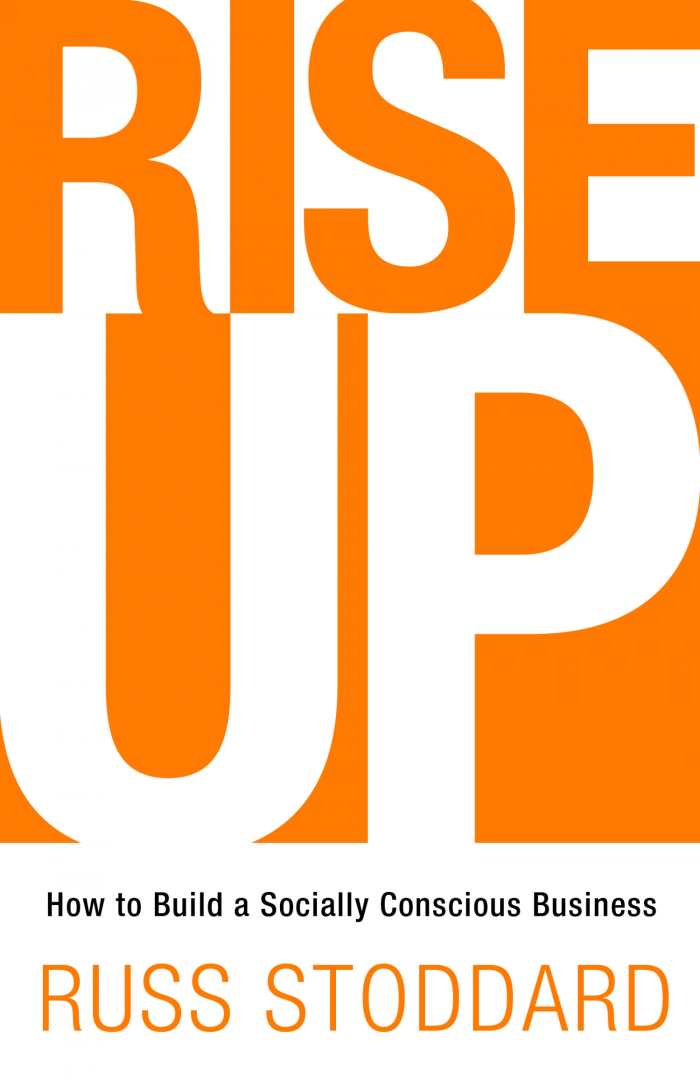
Russ Stoddard
Elevate Publishing
Softcover $15.99 (160pp)
978-1-945449-38-3
Buy: Amazon
The goal of Rise Up is a noble one—to teach business executives “how to build a socially conscious business.” Russ Stoddard, who founded such a business himself and now builds brands for purpose-driven companies, provides the ingredients for success in a book that is brief and easy to read, yet deeply meaningful.
Rise Up begins with an overview of the social enterprise and a discussion of the “purpose-driven movement.” Then the author methodically steps through the key elements of building a socially conscious business: developing a purpose statement, defining values, creating the appropriate corporate structure (including a comparison of Benefit Corporations and Certified B Corps), hiring and managing coworkers rather than “employees,” and telling the corporate story.
The last section includes enough detail to act as a valuable communications road map. Stoddard also discusses how companies can achieve a balance between “people, planet, and profit,” sharing brief case studies of five purpose-driven companies to illustrate their altruistic approach to business.
One of the more captivating chapters, “The Road Ahead,” presents the author’s “six predictions for the future” of the purpose-driven movement. These predictions, which include wide acceptance of corporate certifications, and activist companies that invest in similarly purpose-driven startups, offer real insight into the fundamental transformation that may take place in the future world of business.
Rise Up is essential reading for entrepreneurs who want to start their own purpose-driven businesses, as well as senior business executives who aspire to lead their organizations to become more socially conscious.
BARRY SILVERSTEIN (August 27, 2017)
The Mood Elevator
Take Charge of Your Feelings, Become a Better You
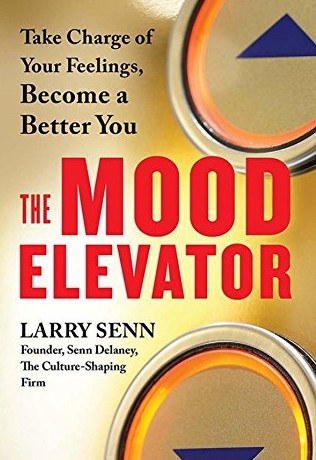
Larry Senn
Berrett-Koehler Publishers
Softcover $18.99 (232pp)
978-1-5230-8461-6
Buy: Amazon
Addressing life’s ever-changing emotional pulls, The Mood Elevator is likely to be an engaging and educational read for employees, managers, and senior executives alike.
Organizational consultant Larry Senn makes excellent use of the elevator analogy to explain how moods go up and down, and how all people can use certain techniques to “help [them] control [their] rides.” Interestingly, the concept applies not just to individuals, but to organizations, as Senn demonstrates through his example of the lightheartedness attributed to the entire staff of Southwest Airlines.
Clearly written short chapters provide specific ways to get the “Mood Elevator” going in the right direction. Especially intriguing are such concepts as “unhealthy normal” (a state that occurs when someone grows so accustomed to negative emotions that they are not even noticeable) and “pattern interrupt” (a technique to “let go of one train of thought and switch to another”).
Broader ideas for emotional improvement center around maintaining physical and mental health, being grateful, and having faith. Acknowledging people’s differences is also important; as Senn wisely states, “it’s generally impossible to say who is ‘right’ or ‘wrong’ when matters of opinion and perspective are involved.”
If thoughtfully considered, the messages in The Mood Elevator are the kind that could affect the manner in which life is lived, as well as one’s overall happiness and satisfaction. This is a powerful book with intrinsic value that is both a personal self-improvement guide and a manual for enlightened executives who want to run emotionally healthy organizations.
BARRY SILVERSTEIN (August 27, 2017)
Totaled
The Billion-Dollar Crash of the Startup that Took on Big Auto, Big Oil and the World
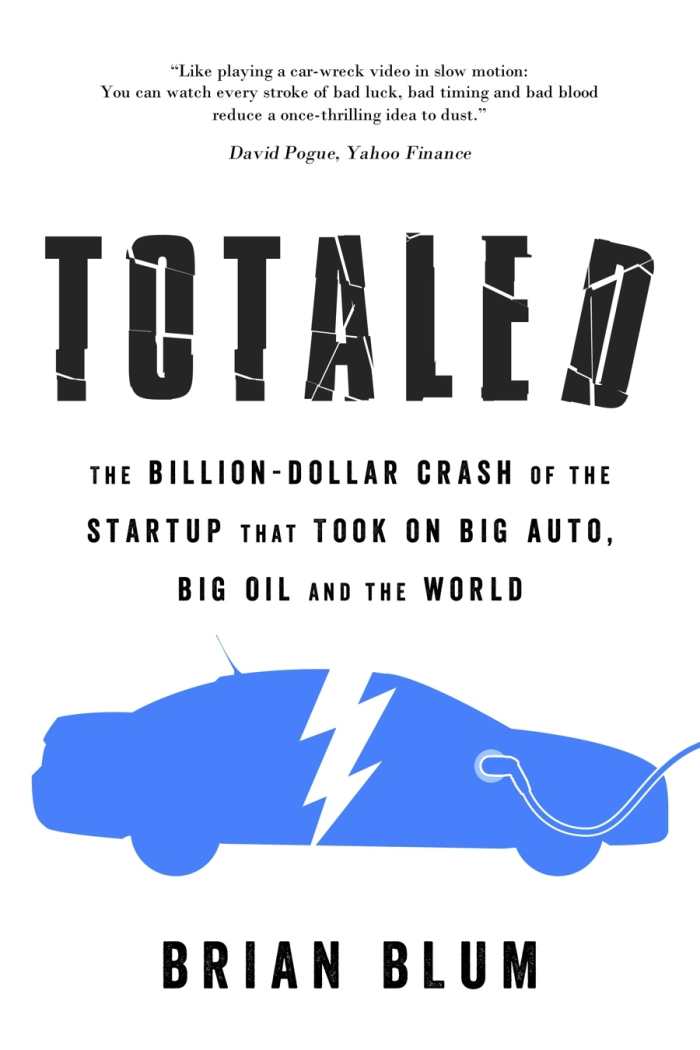
Brian Blum
Blue Pepper Press
Softcover $17.99 (358pp)
978-0-9830428-1-5
Buy: Local Bookstore (Bookshop), Amazon
Brian Blum, a technology journalist, characterizes the Israeli company Better Place as “perhaps the most spectacularly failed technology startup of the 21st century” in his novel-like business story, Totaled.
Blum tells the tale of the irrepressible, charismatic Shai Agassi, who started Better Place in 2007 with a unique if somewhat implausible goal: to reduce the world’s dependency on oil by creating electric cars with batteries that would be switched out by robots rather than recharged.
In a book that breathlessly relates the wild ride of a startup whose audacious goal far outpaced its ability to deliver, Blum masterfully traces the rise, evolution, and eventual fall of Better Place. While it introduces numerous players, its most intimate look is at the visionary Agassi—as compelling an antihero as found in any technology thriller.
It is Agassi who charms major international investors and national leaders, including Israeli president Shimon Peres, negotiating a partnership with Renault to build the electric car needed to turn his improbable idea into reality.
The book’s as-it-happens narrative makes for riveting reading. Given the very current interest in climate change, Totaled is all the more compellingly relevant, as it uncovers the technological difficulty of developing potential solutions to the world’s most serious challenge.
It is fascinating to witness a promising, well-funded company fall prey to hubris, poor execution, and economic calamity. Blum’s insightful seven lessons at the end of the book offer valuable cautionary advice for startups.
BARRY SILVERSTEIN (August 27, 2017)
Barry Silverstein

